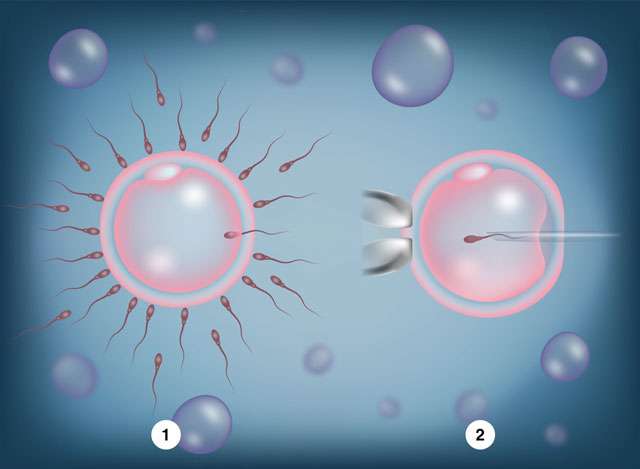For couples struggling with infertility, in vitro fertilization (IVF) can be a lifeline to building the family they’ve always dreamed of. However, there are several different approaches to IVF, including intracytoplasmic sperm injection (ICSI) and conventional IVF. In this article, we’ll explore the differences between ICSI and conventional IVF, and how our fertility clinics in Gilbert, Arizona can help couples determine which approach is best for them.
What is Conventional IVF?
Conventional IVF is the most common approach to in vitro fertilization. It involves the collection of eggs from the ovaries, which are then fertilized with sperm in a petri dish in the laboratory. The embryos are allowed to develop for several days, and then one or more are transferred to the uterus.
What is ICSI?
ICSI is a more specialized form of IVF that is used when male factor infertility is present. It involves the injection of a single sperm directly into the egg using a fine needle. This is done to bypass any barriers that may be preventing the sperm from fertilizing the egg on its own.
ICSI vs. Conventional IVF: What are the Differences?
The main difference between ICSI and conventional IVF is the method of fertilization. In conventional IVF, the eggs and sperm are mixed together in a petri dish and allowed to fertilize on their own. In ICSI, a single sperm is selected and injected directly into the egg.
ICSI is often recommended for couples with male factor infertility, such as low sperm count or poor sperm motility. It may also be recommended in cases where conventional IVF has not been successful, or when there are other barriers to fertilization.
Conventional IVF, on the other hand, is typically used for couples with no known male fertility issues, or when female factor infertility is present. It can also be used in cases where male factor infertility is present, but the sperm count and motility are within normal ranges.
Which Approach is Right for You?
Determining whether ICSI or conventional IVF is the right approach for you will depend on several factors, including the cause of your infertility, and the need for certain genetic testing. Our fertility specialists in Arizona can work with you to evaluate your individual needs and determine which approach is best for you.
At our fertility clinic, you can expect personalized care and support throughout the IVF process. Your fertility specialists Dr. Mark Amols and Dr. Seth Derman will work with you to develop a treatment plan that meets your needs and addresses your unique concerns. They will also provide ongoing support and guidance throughout your journey to parenthood.
In Conclusion
ICSI and conventional IVF are two different approaches to in vitro fertilization, each with its own benefits and limitations. If you are considering IVF in Arizona, or anywhere else for that matter, it is important to work with a fertility specialist who can help you determine which approach is best for you. With the right care and support, you can take control of your fertility journey and achieve your dream of building a family.

